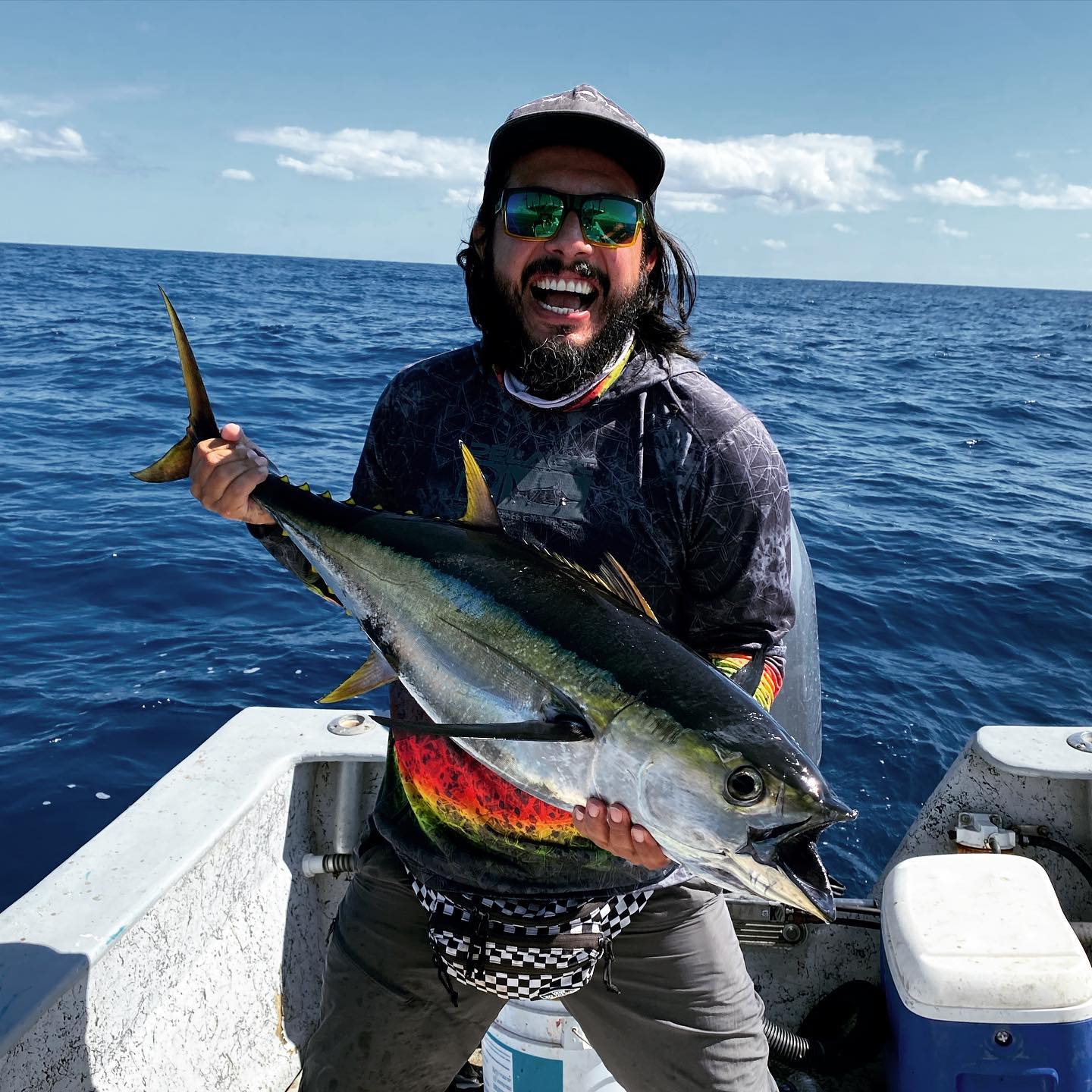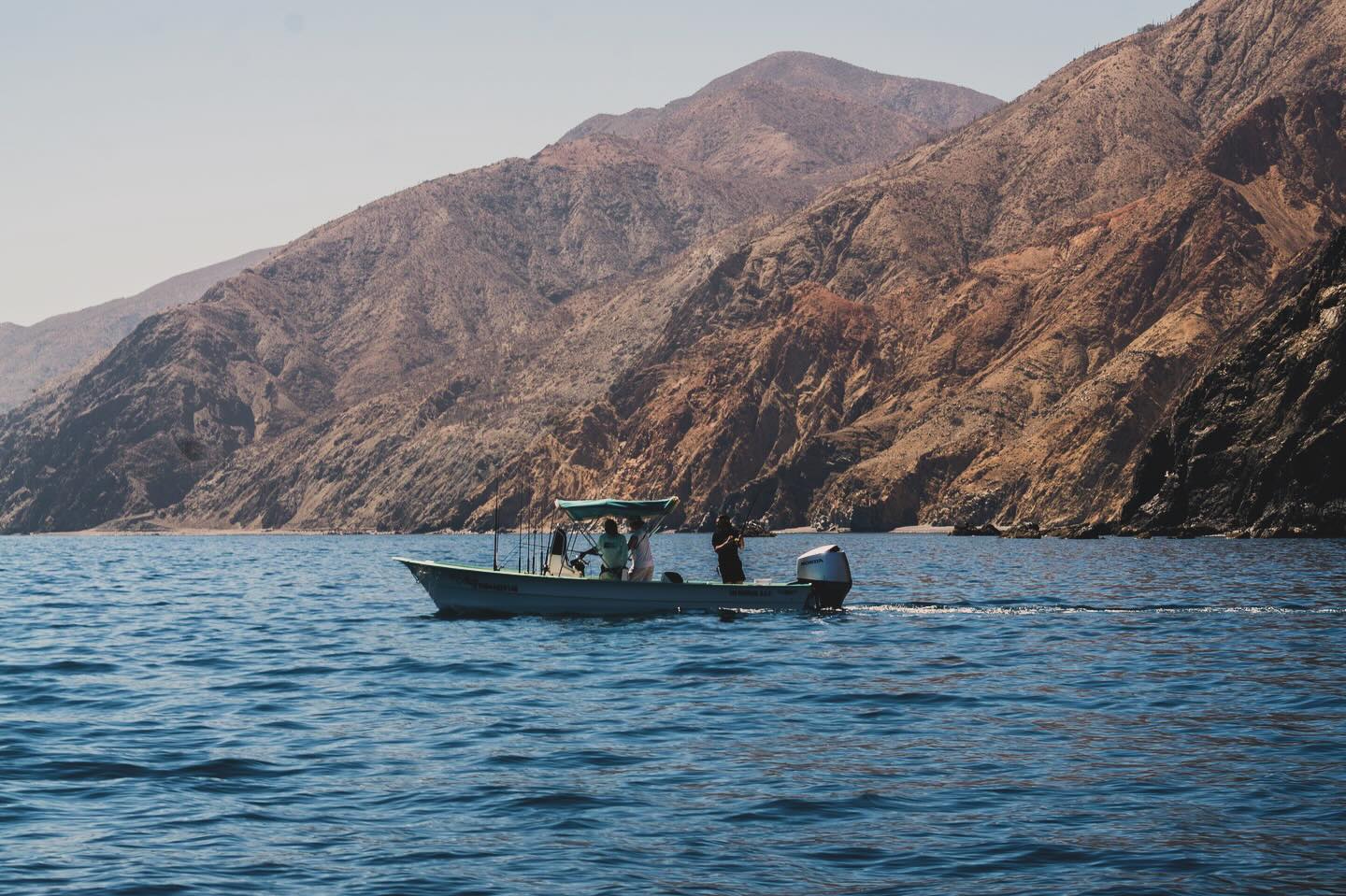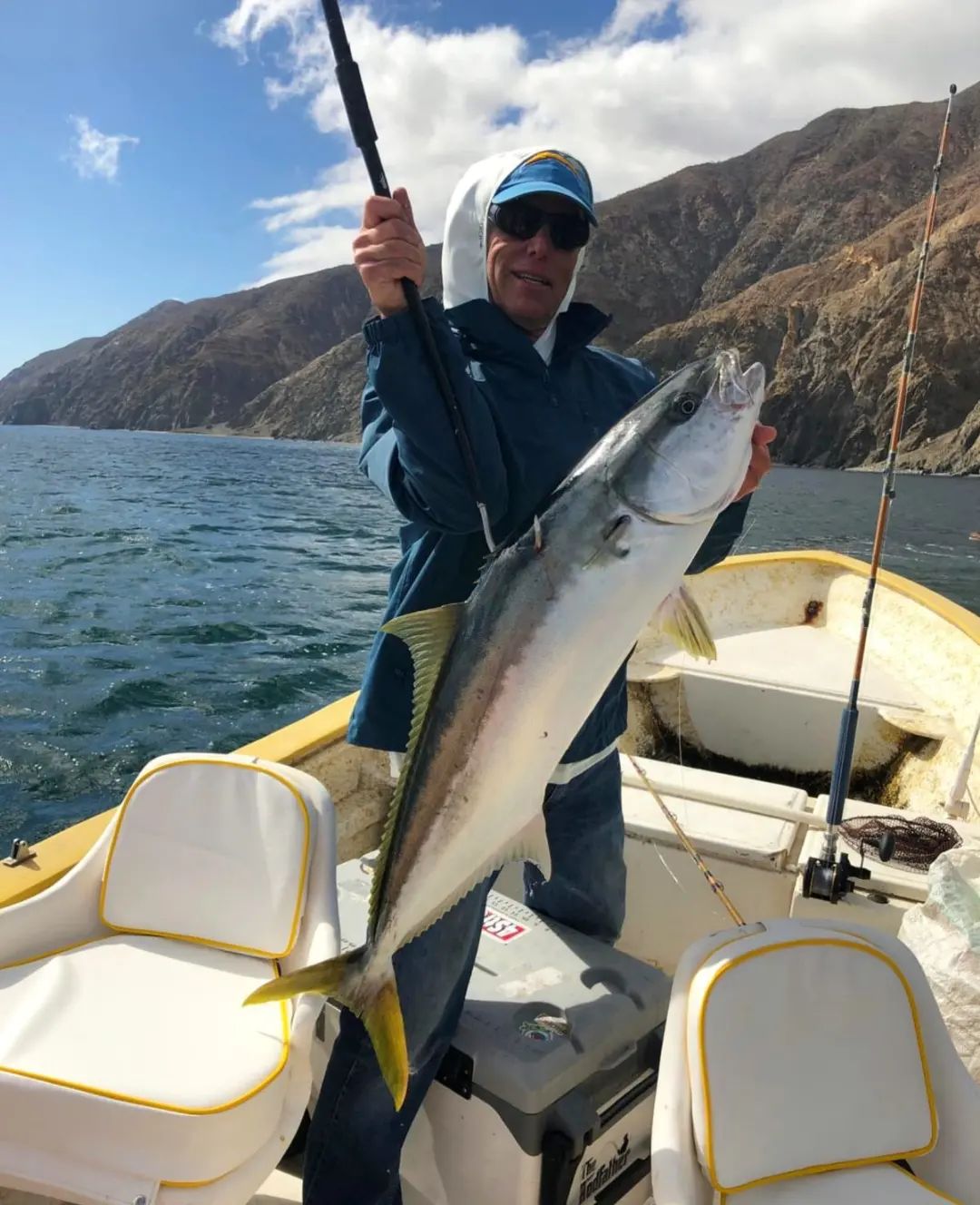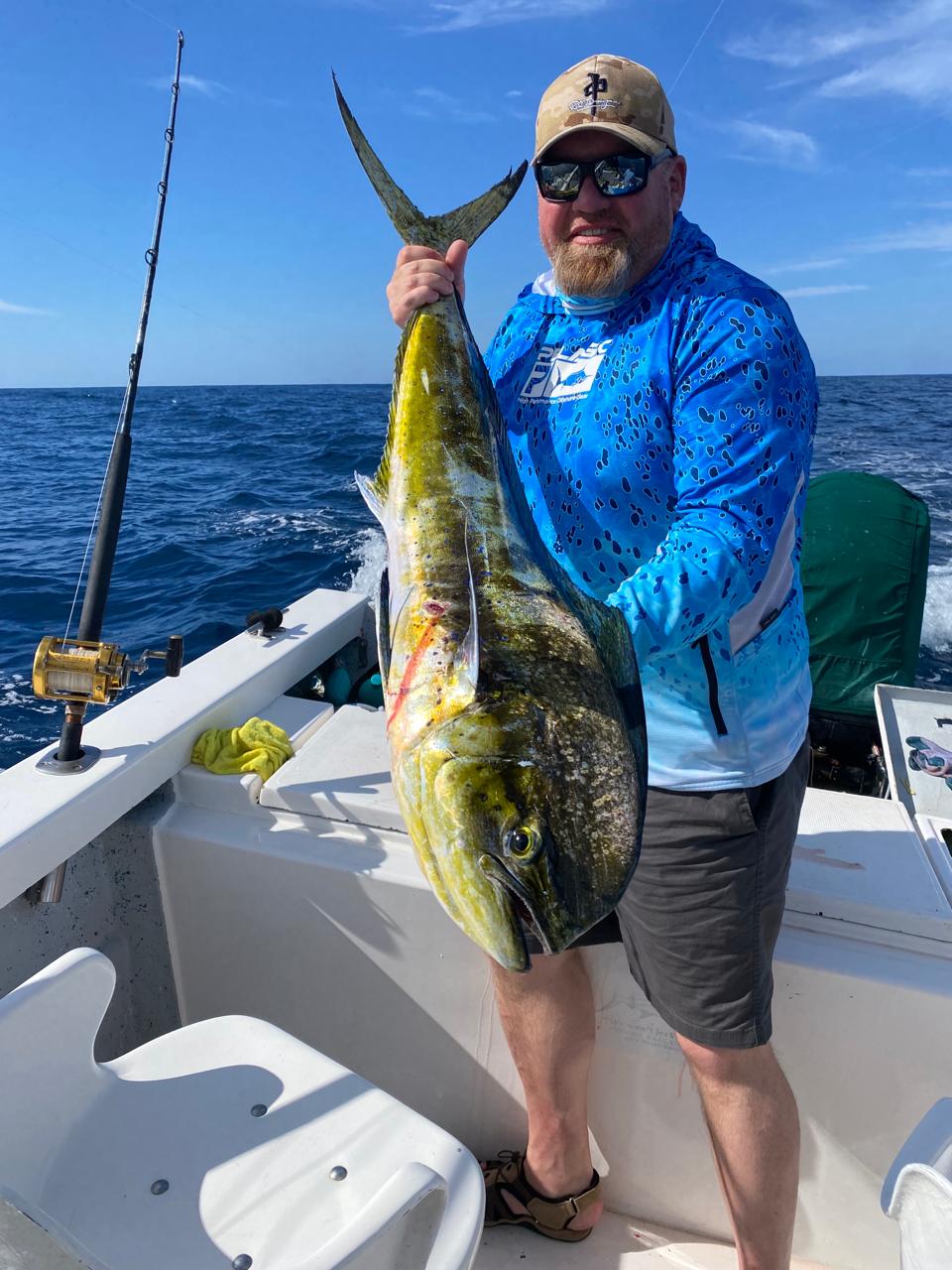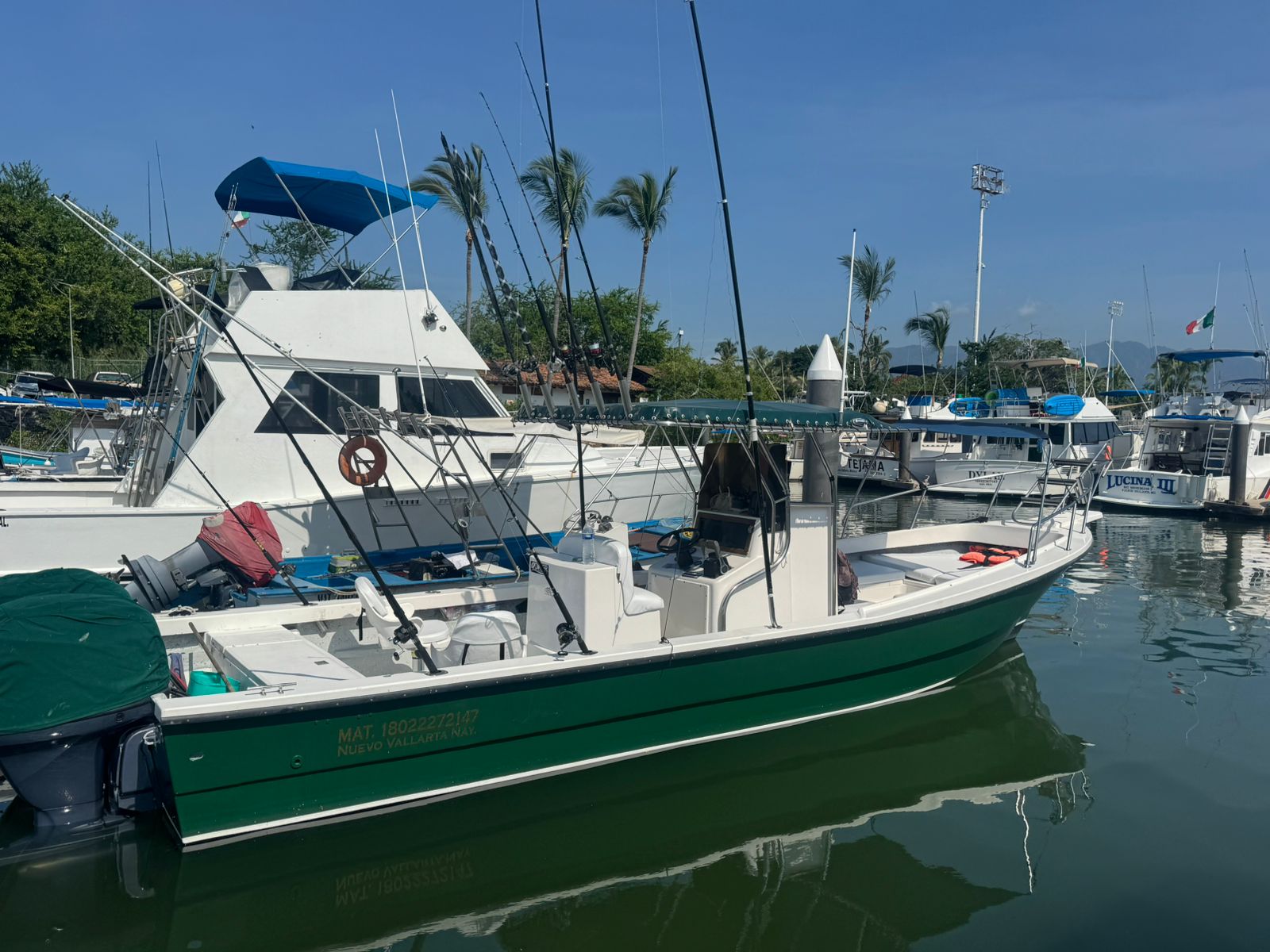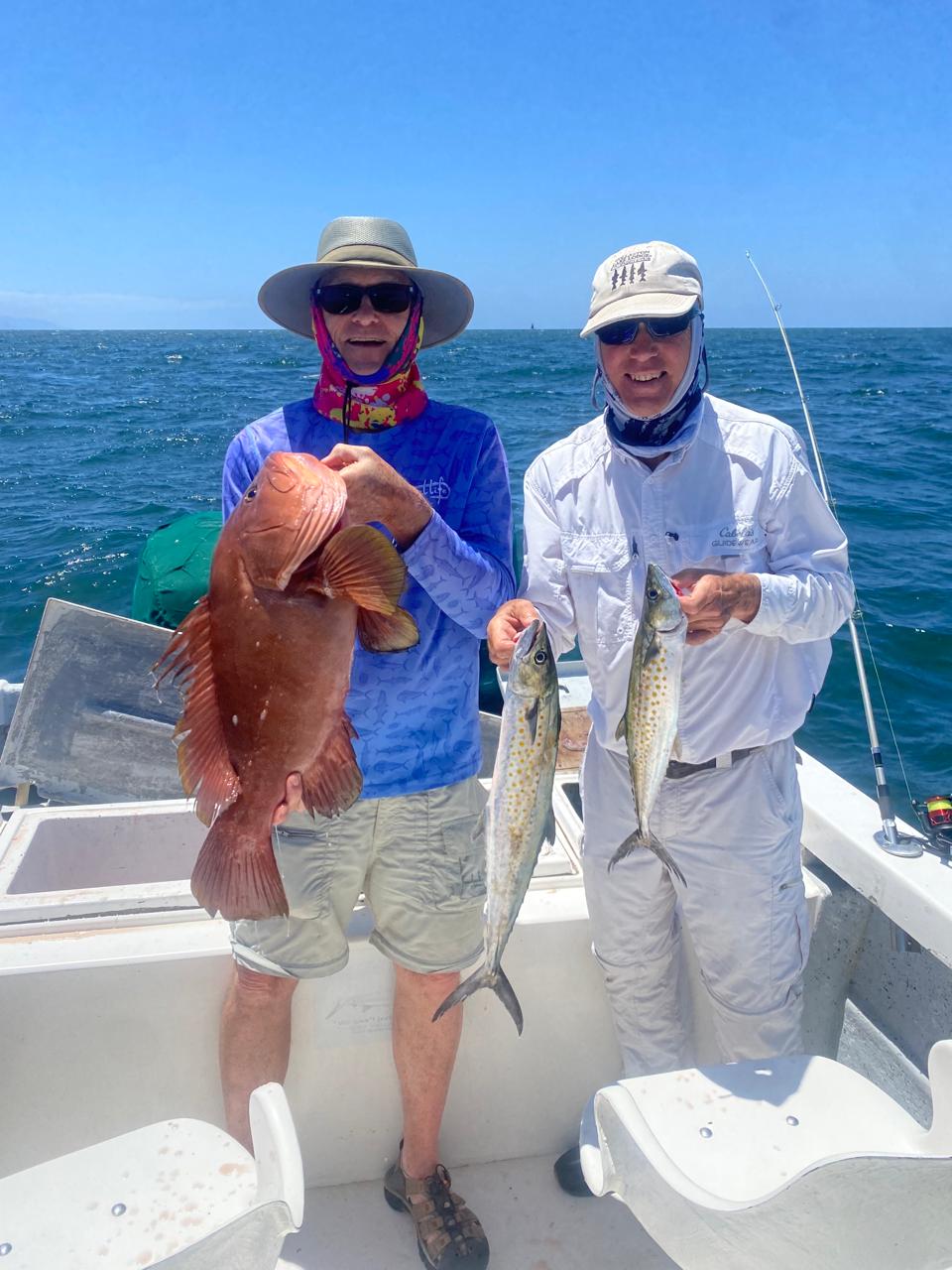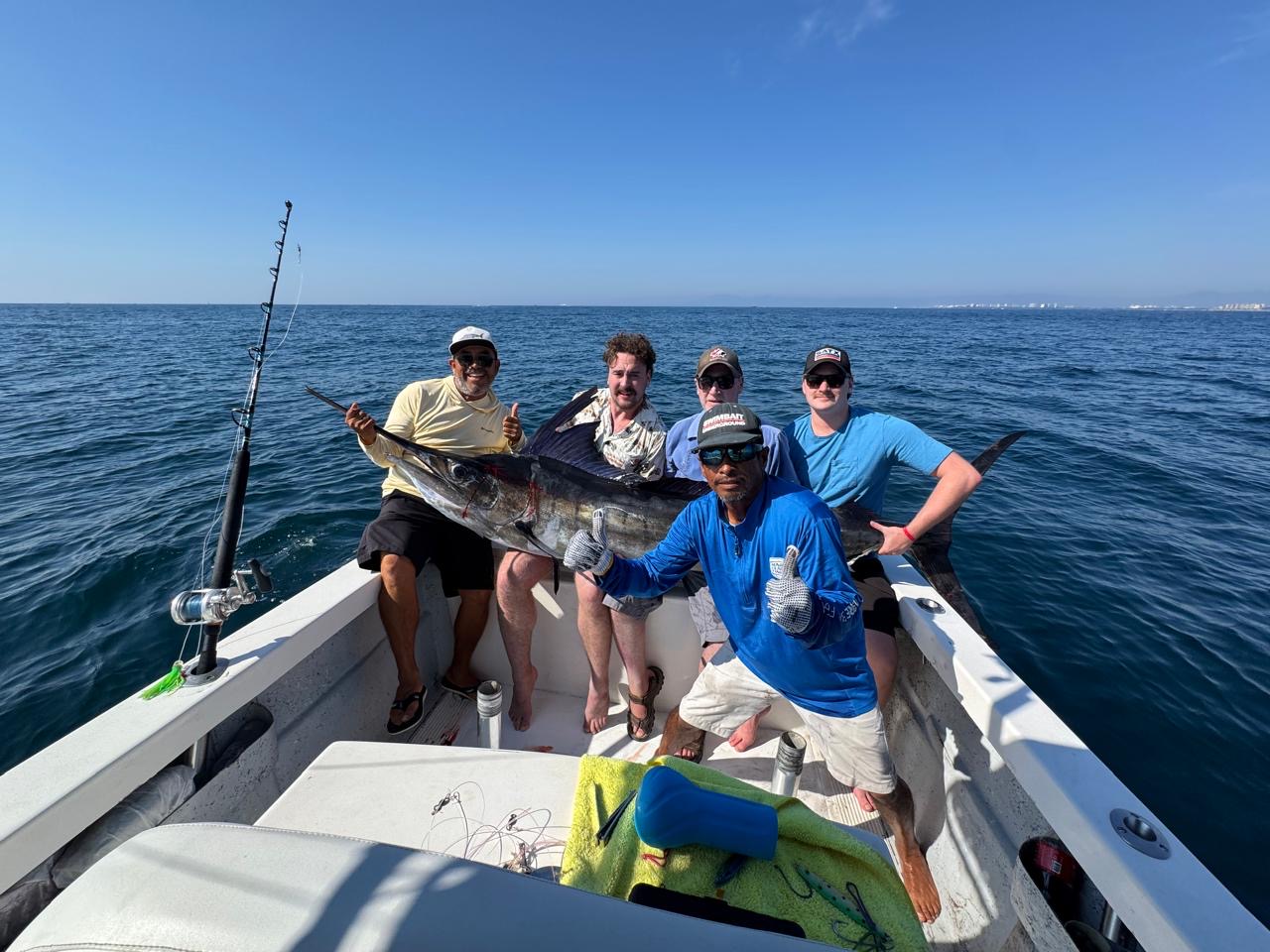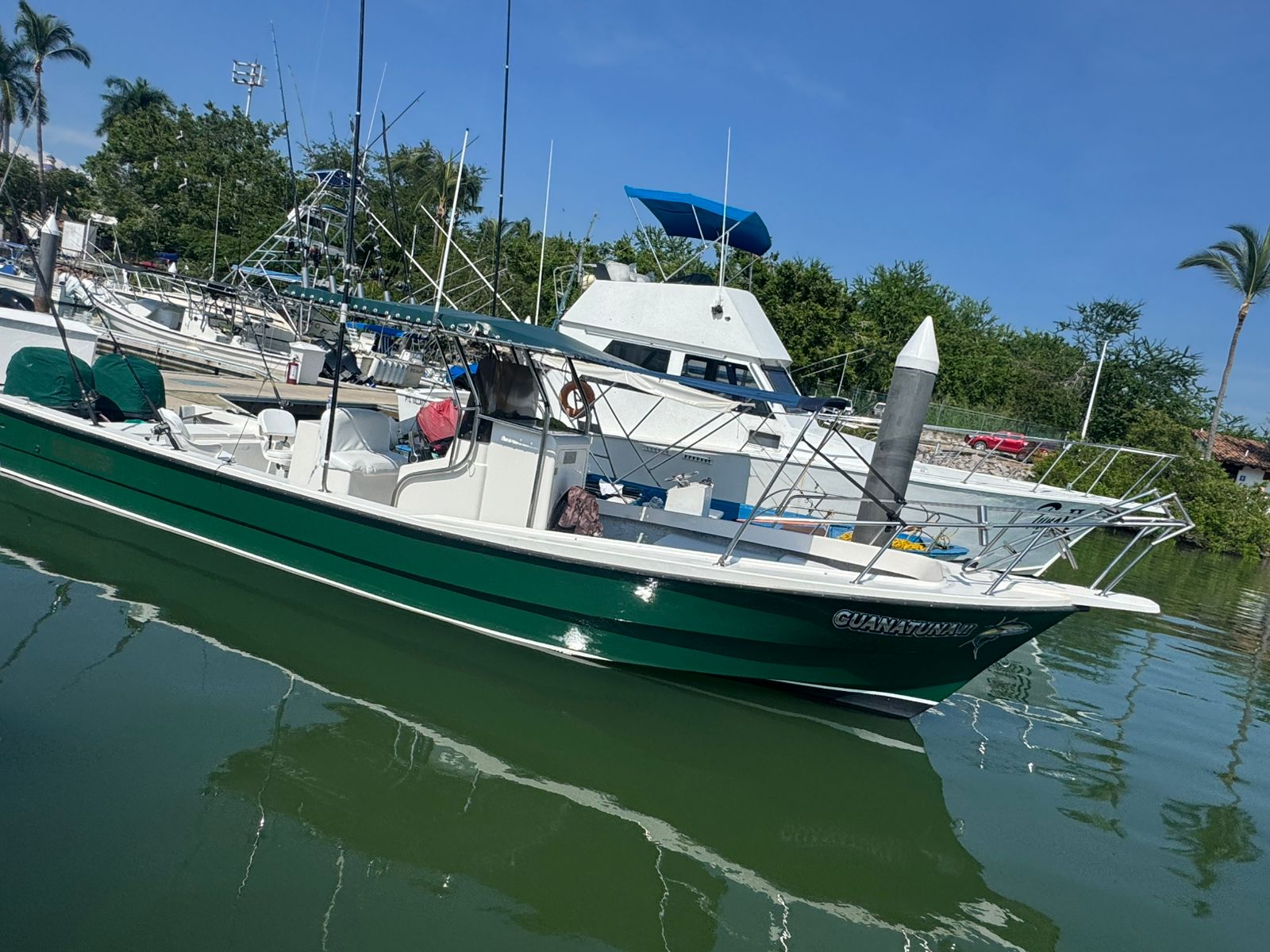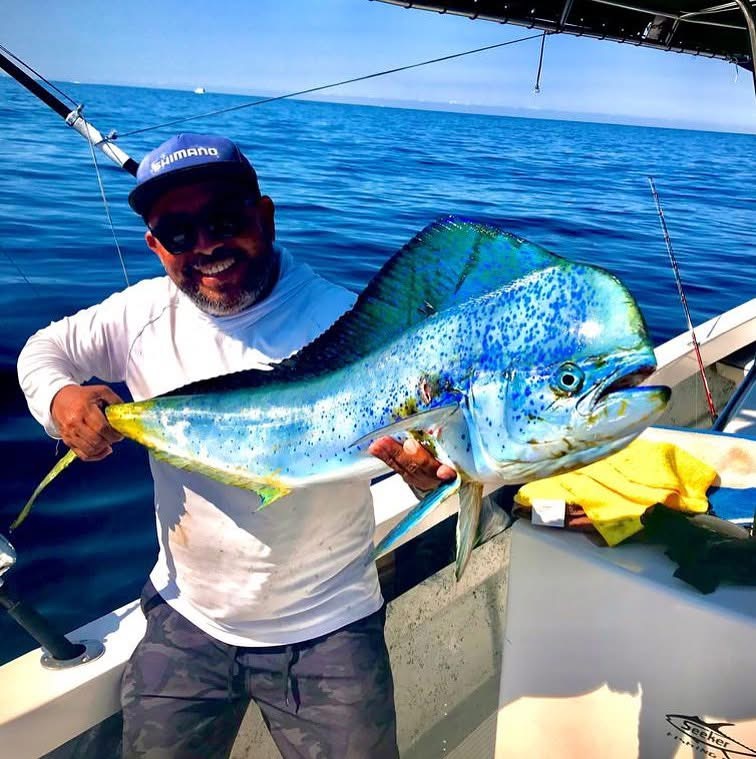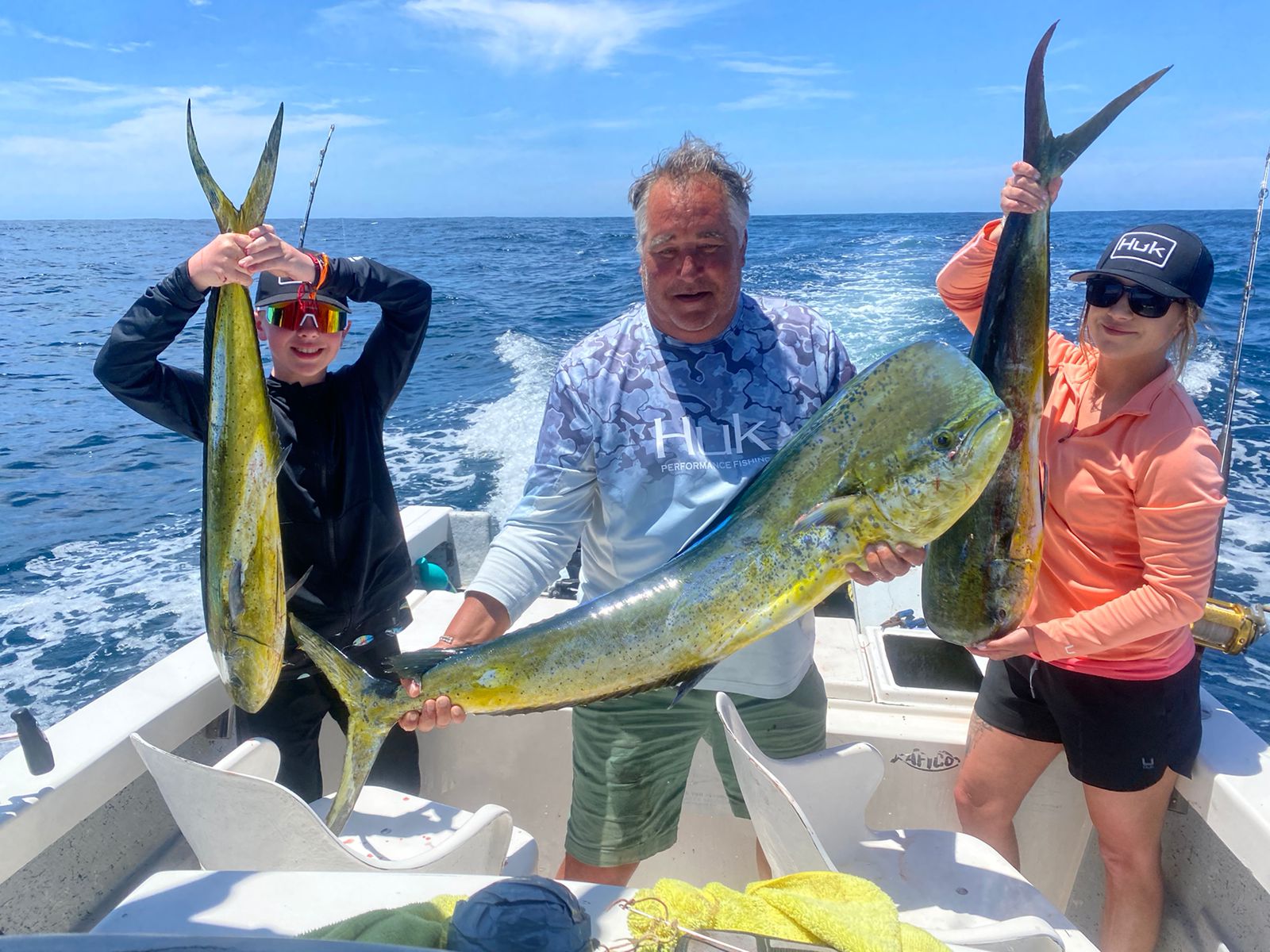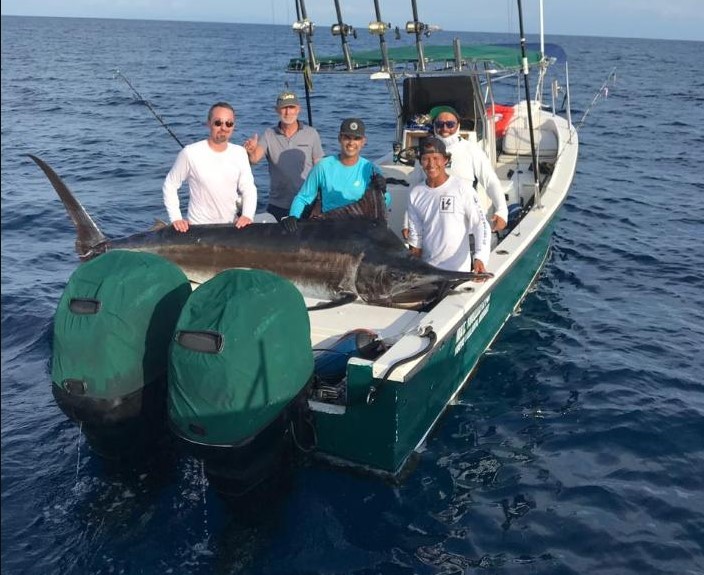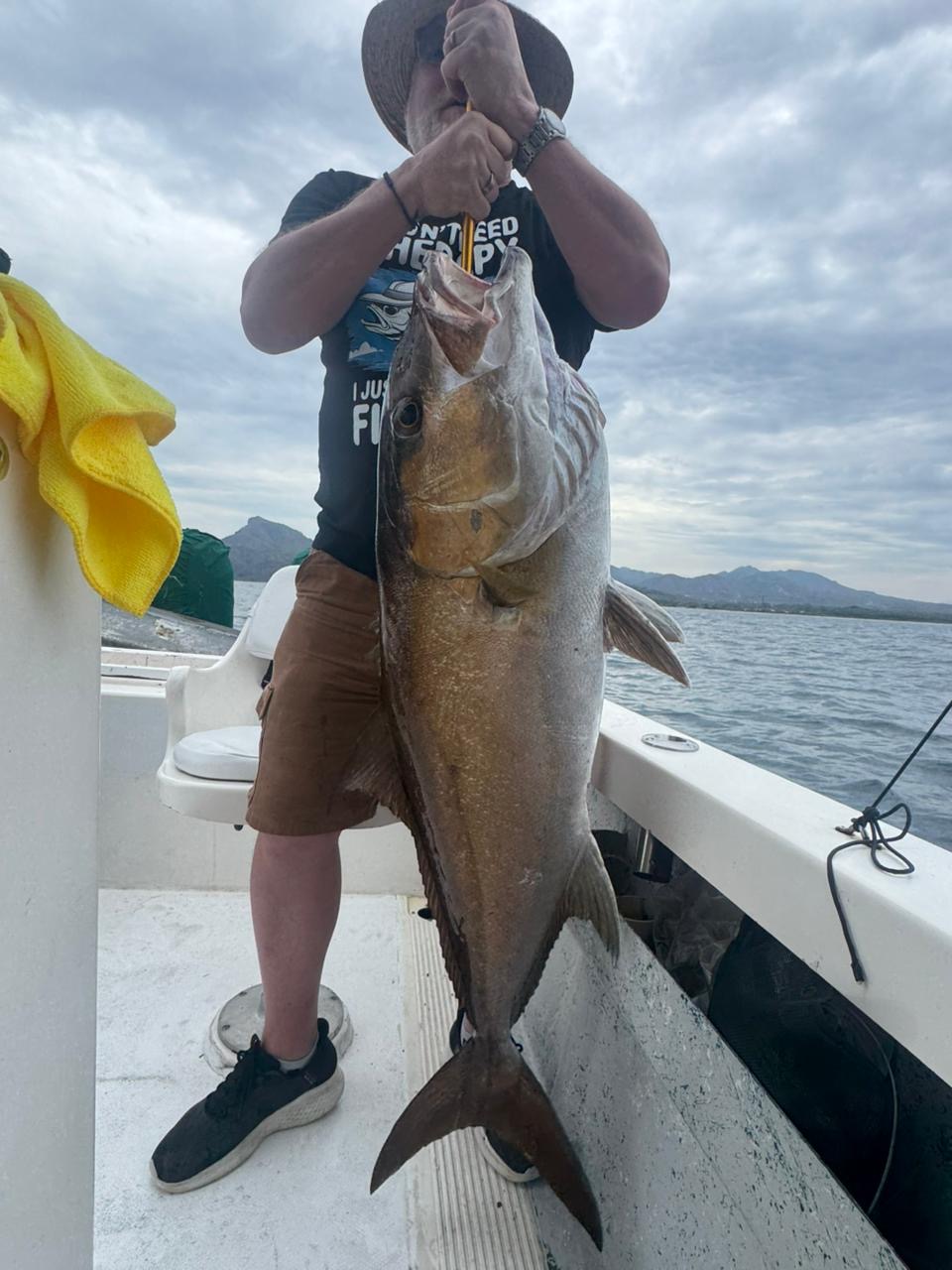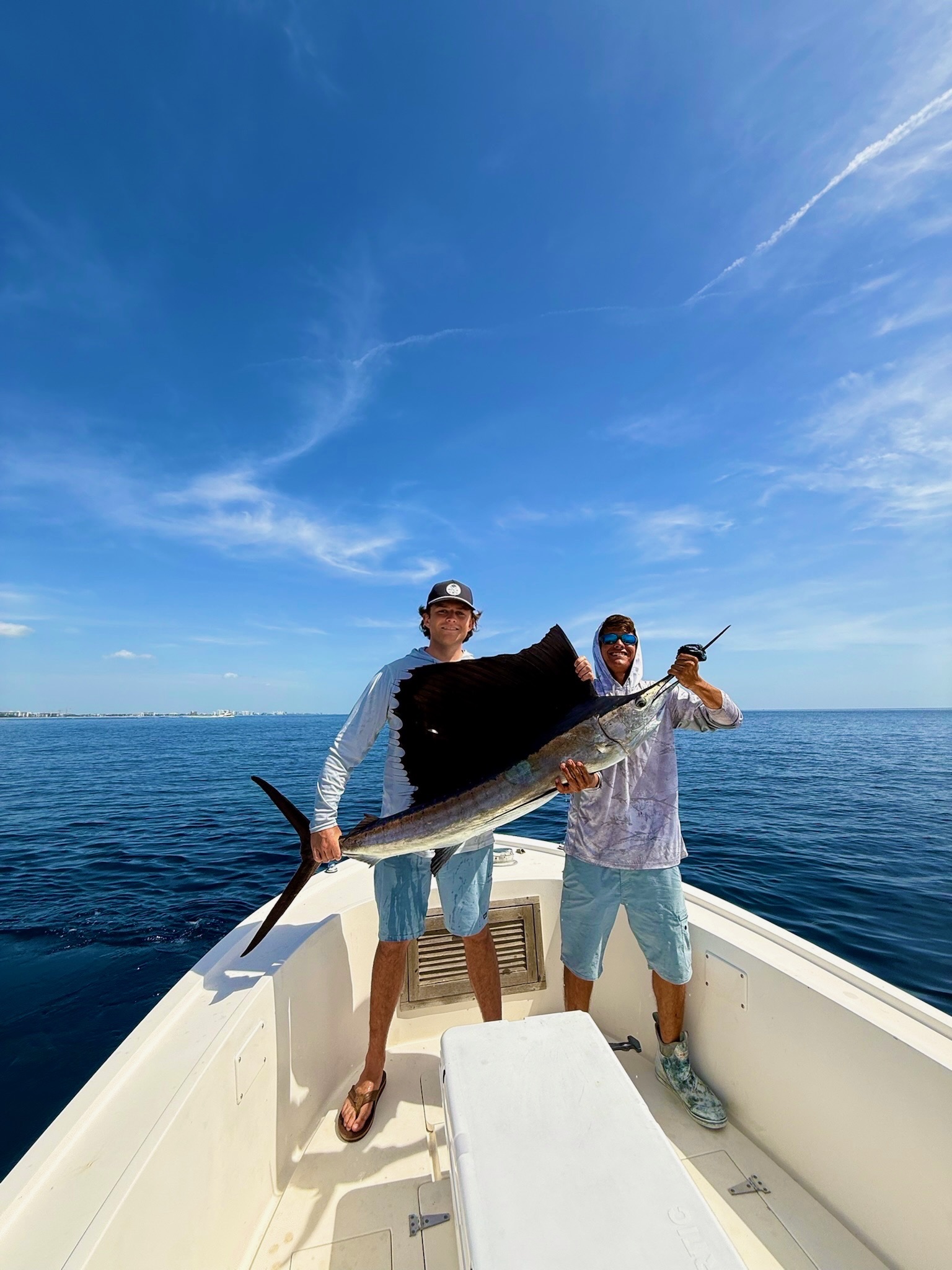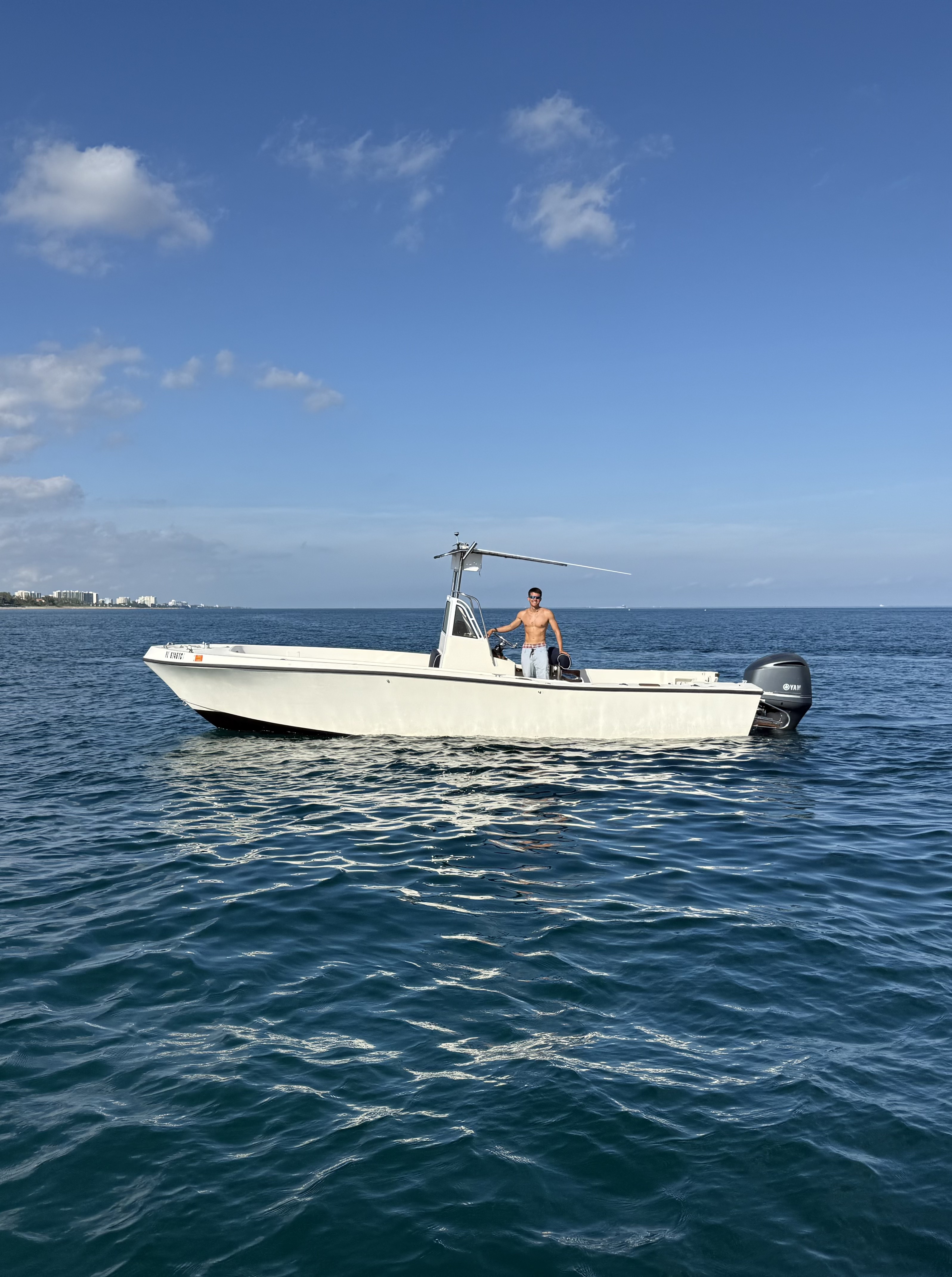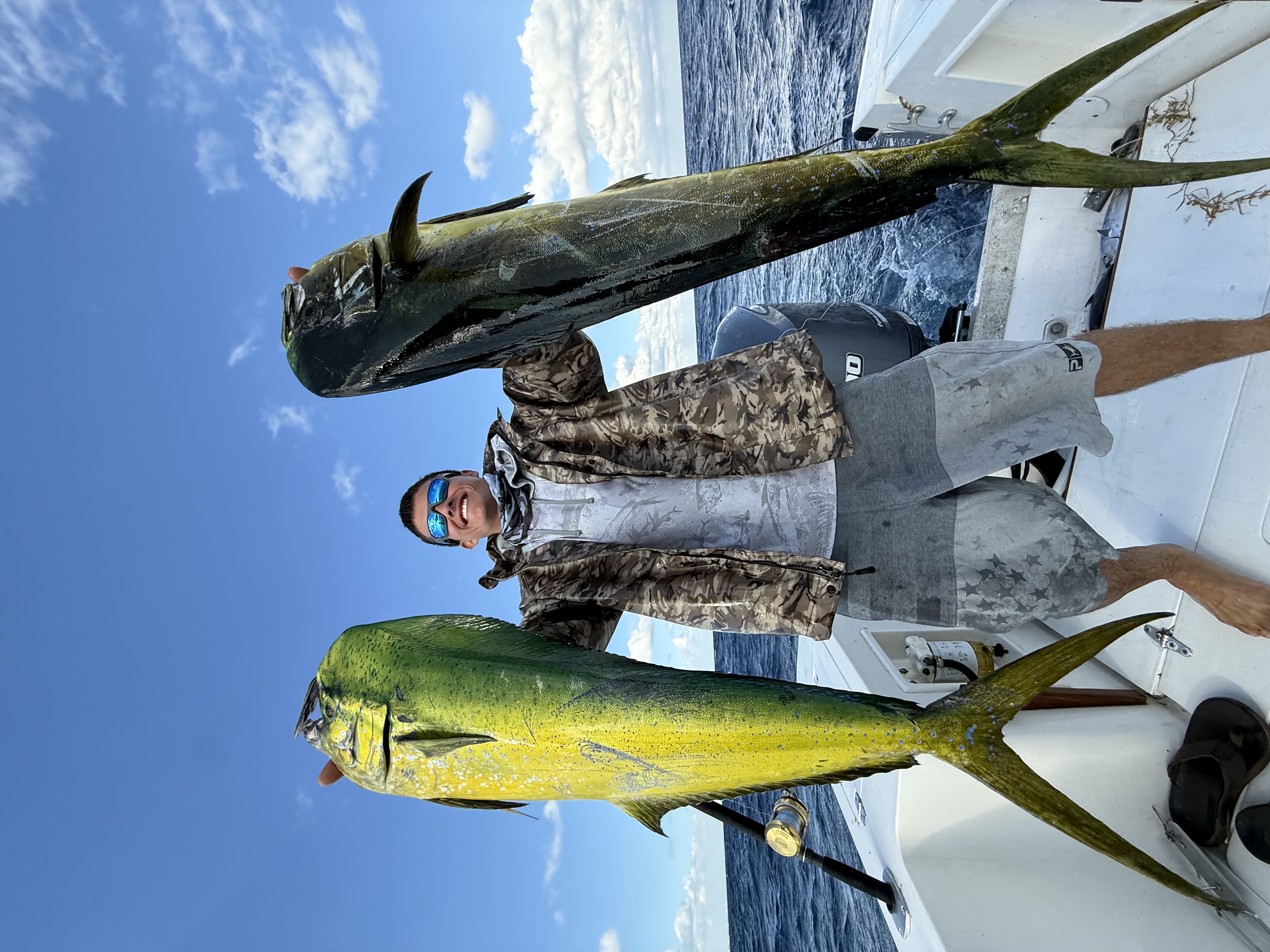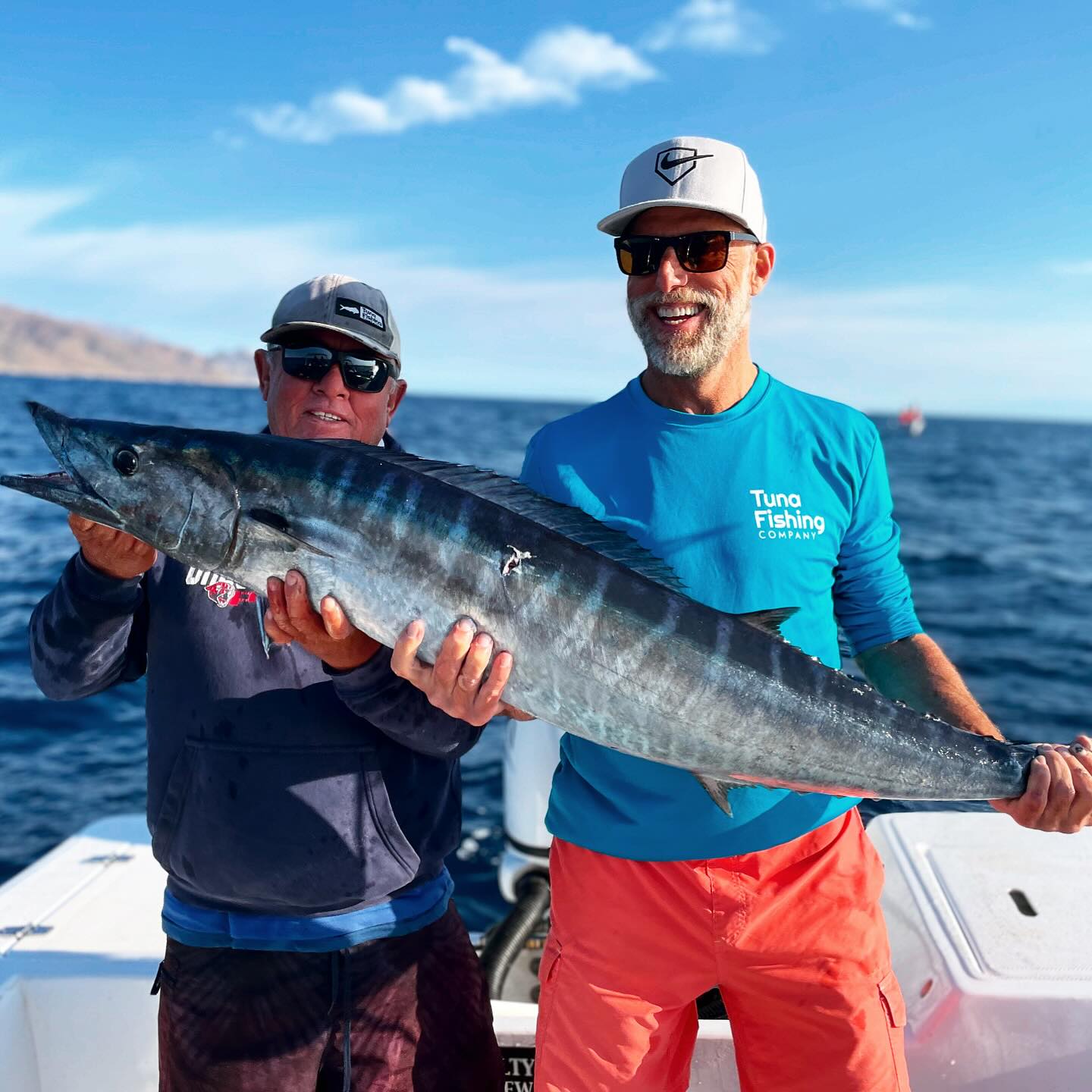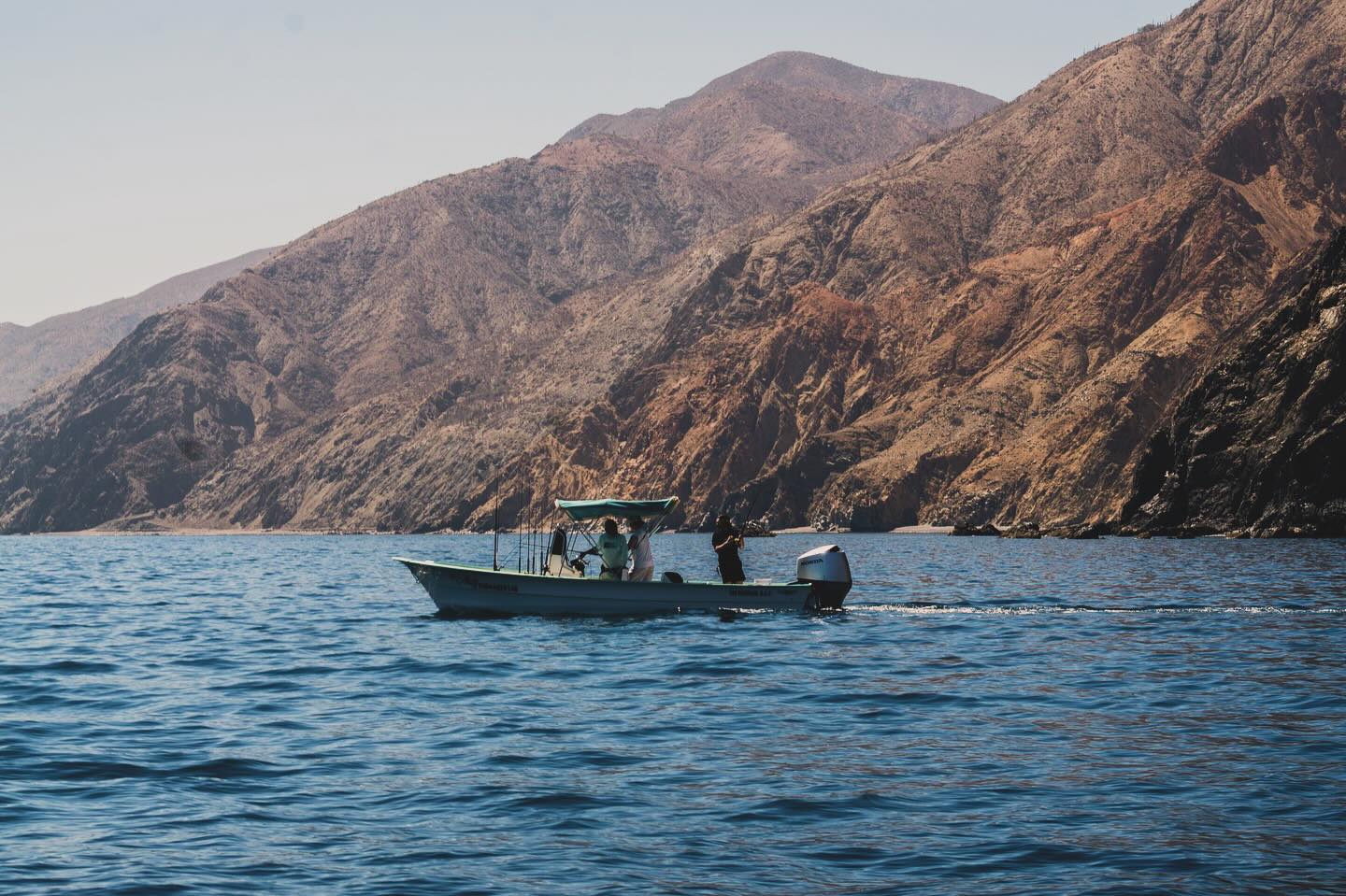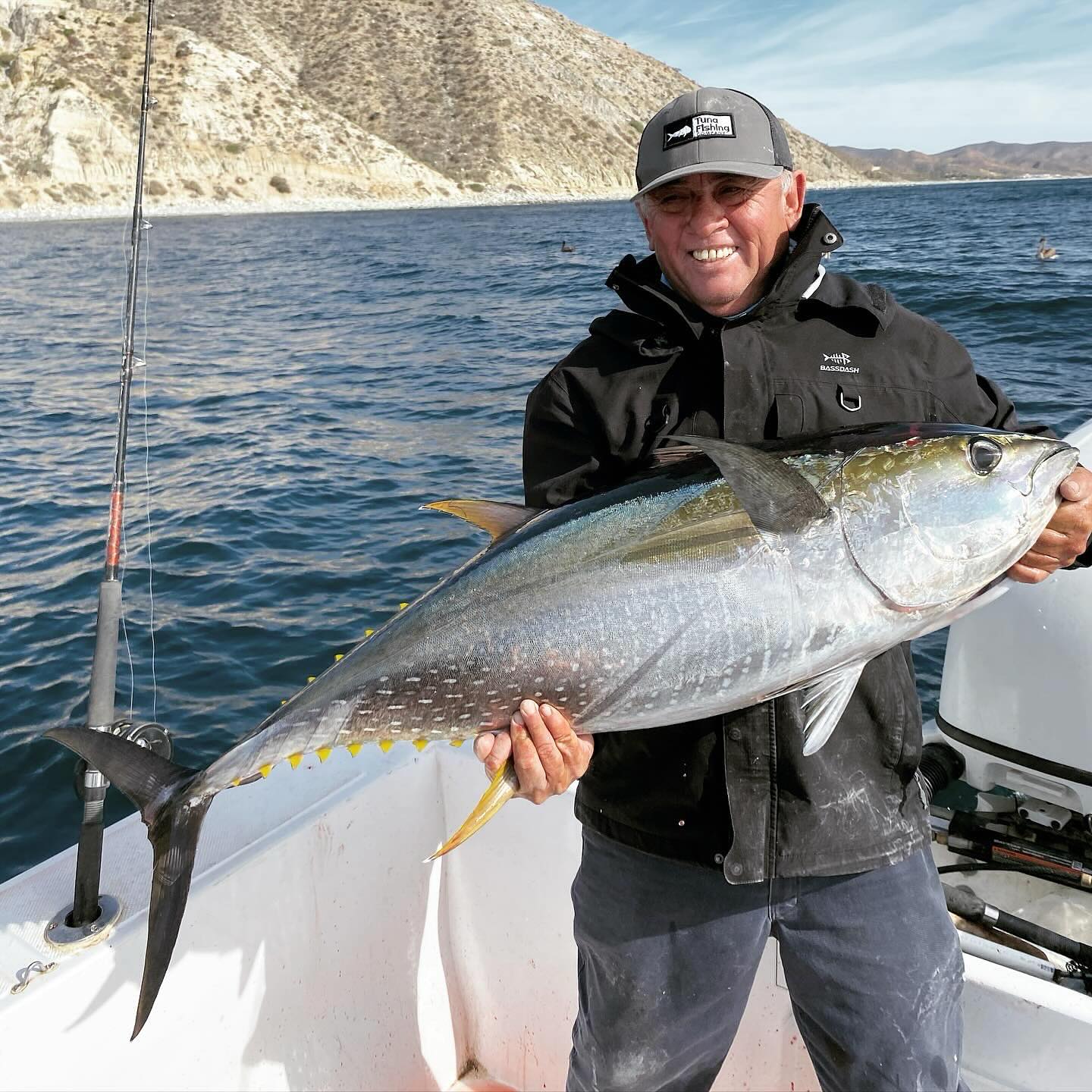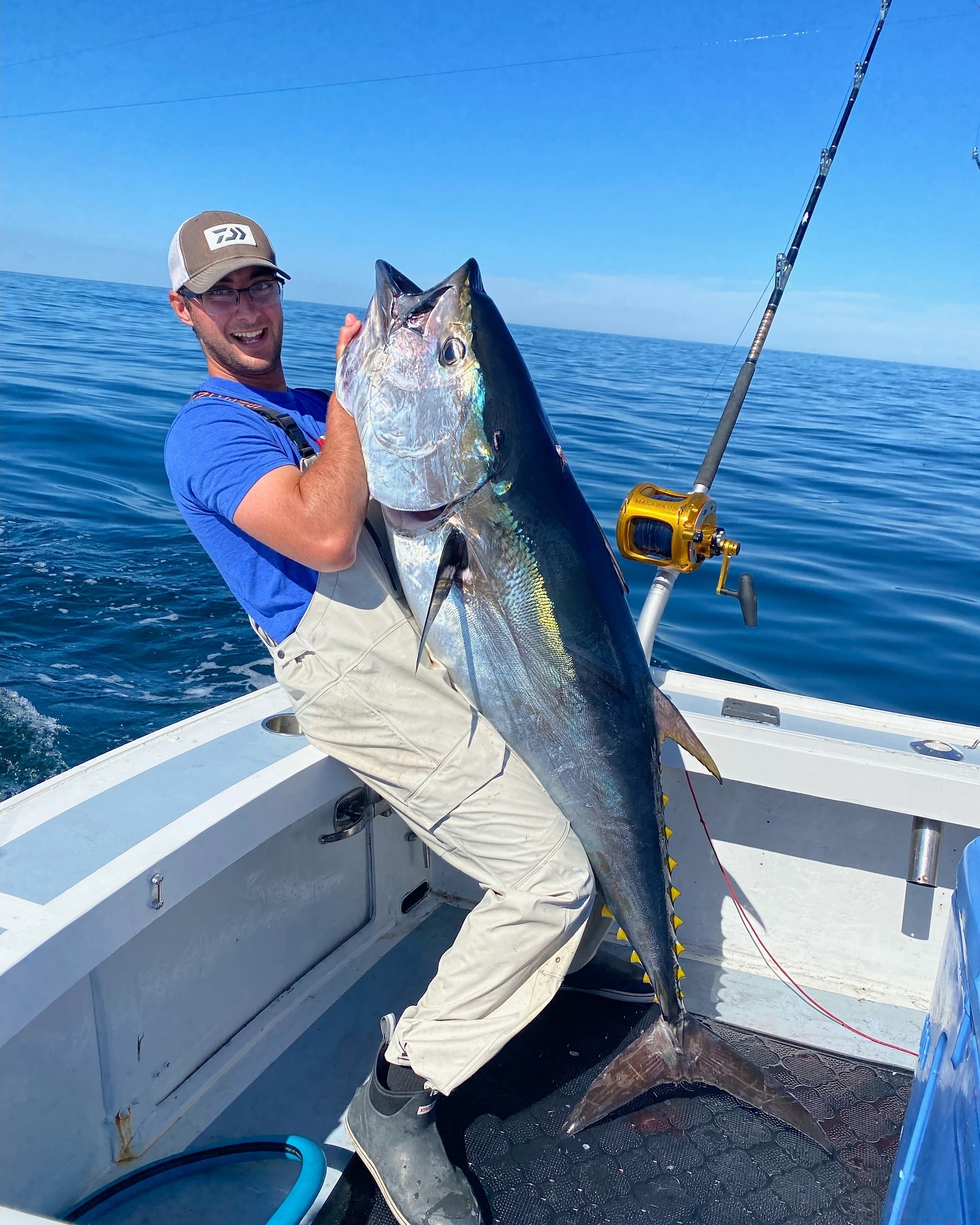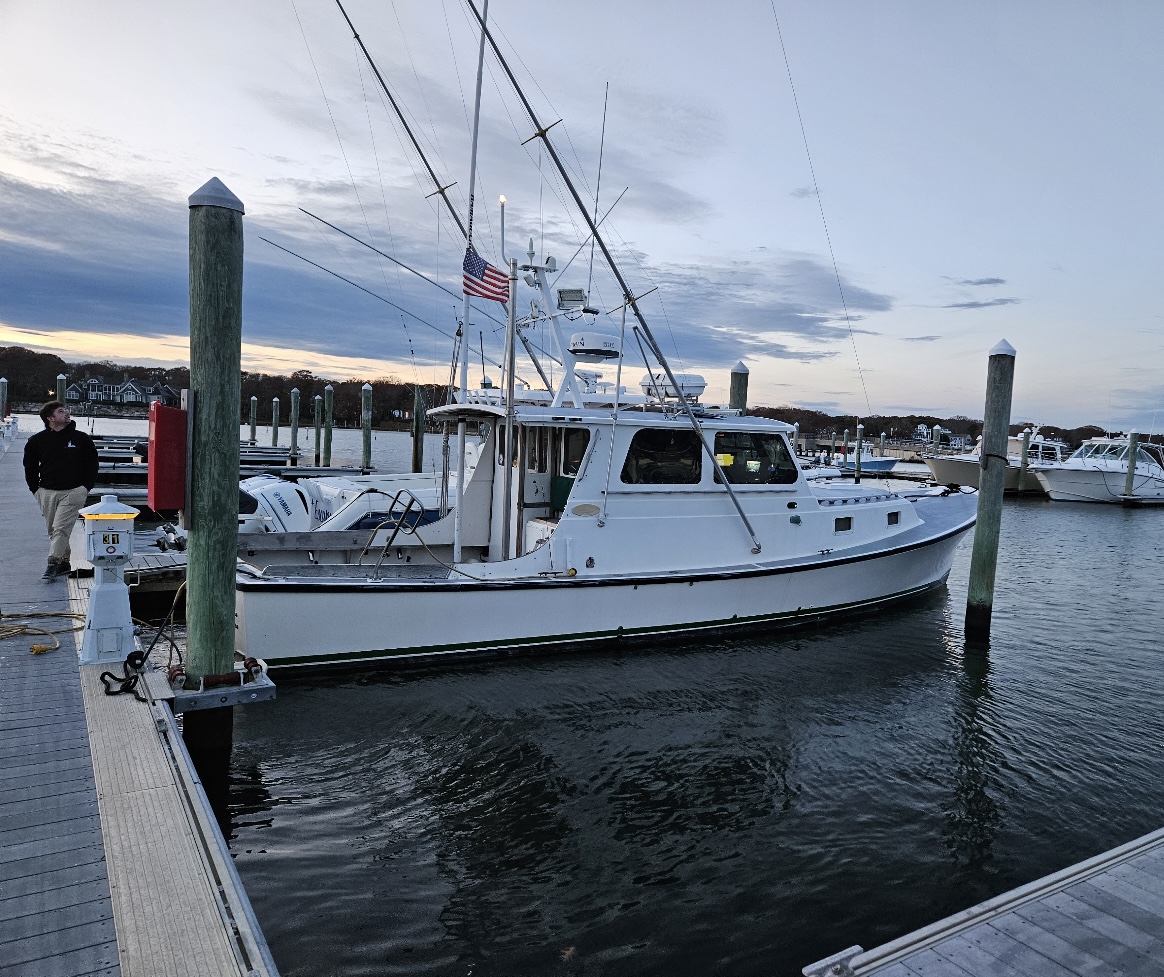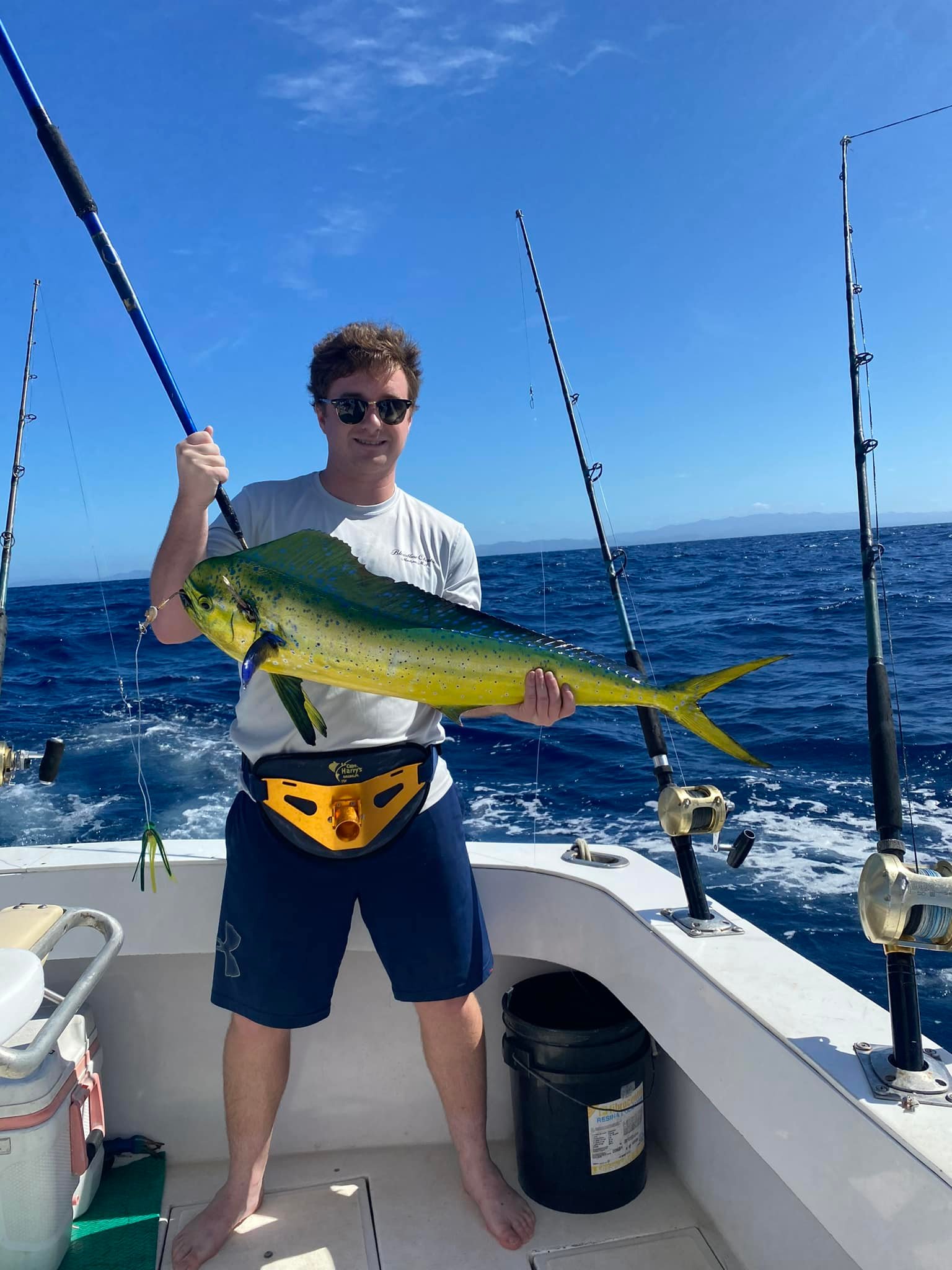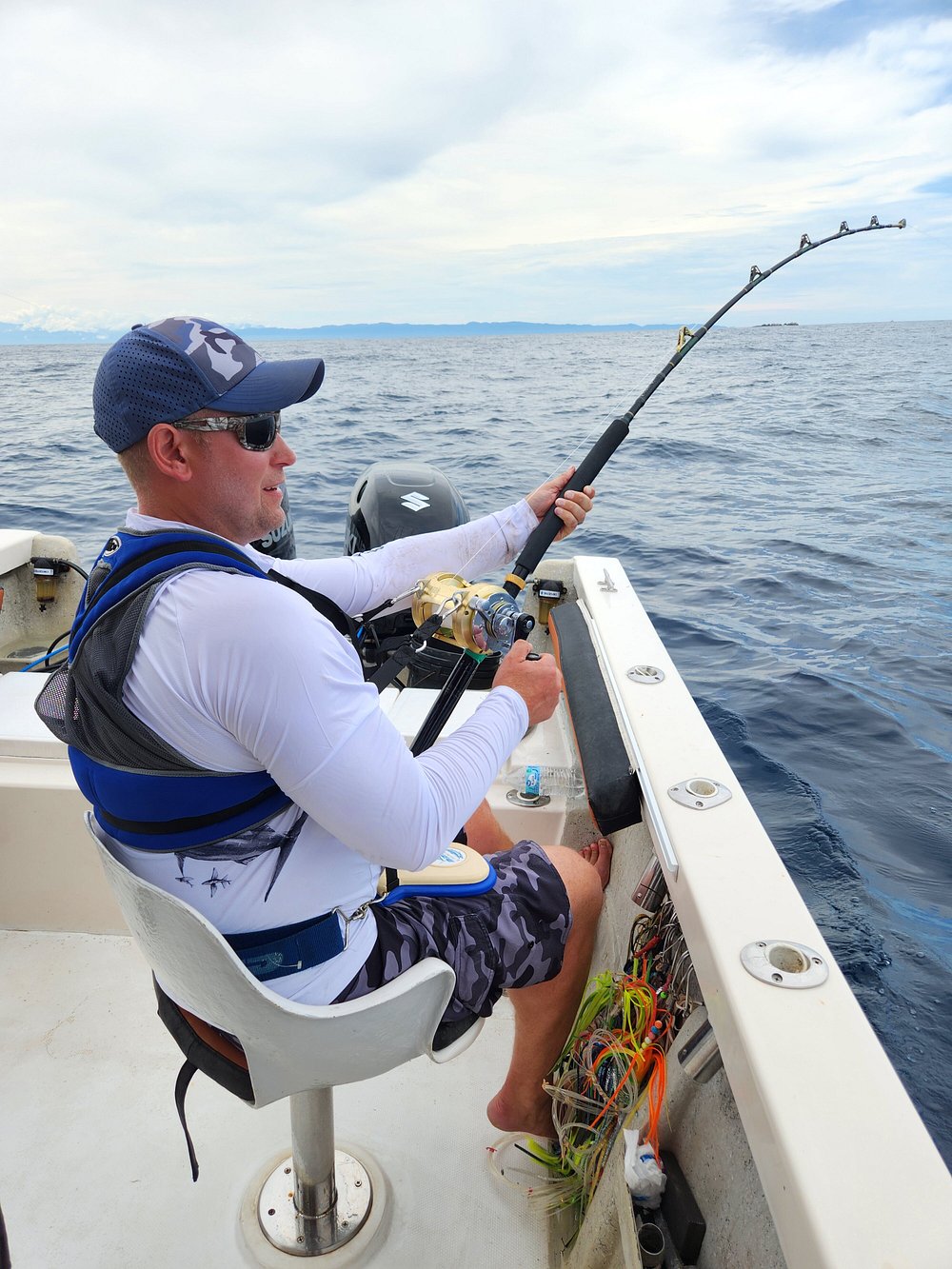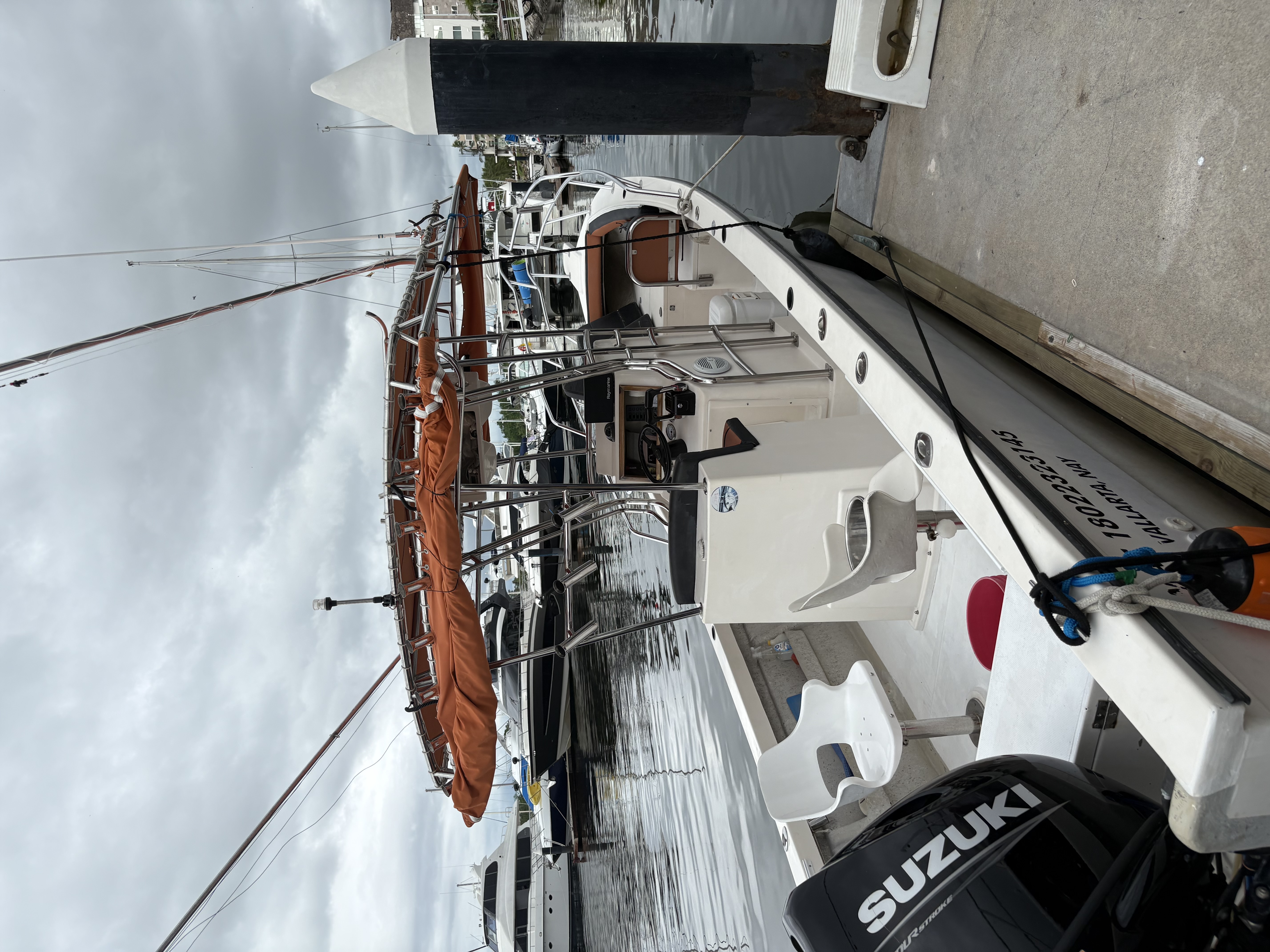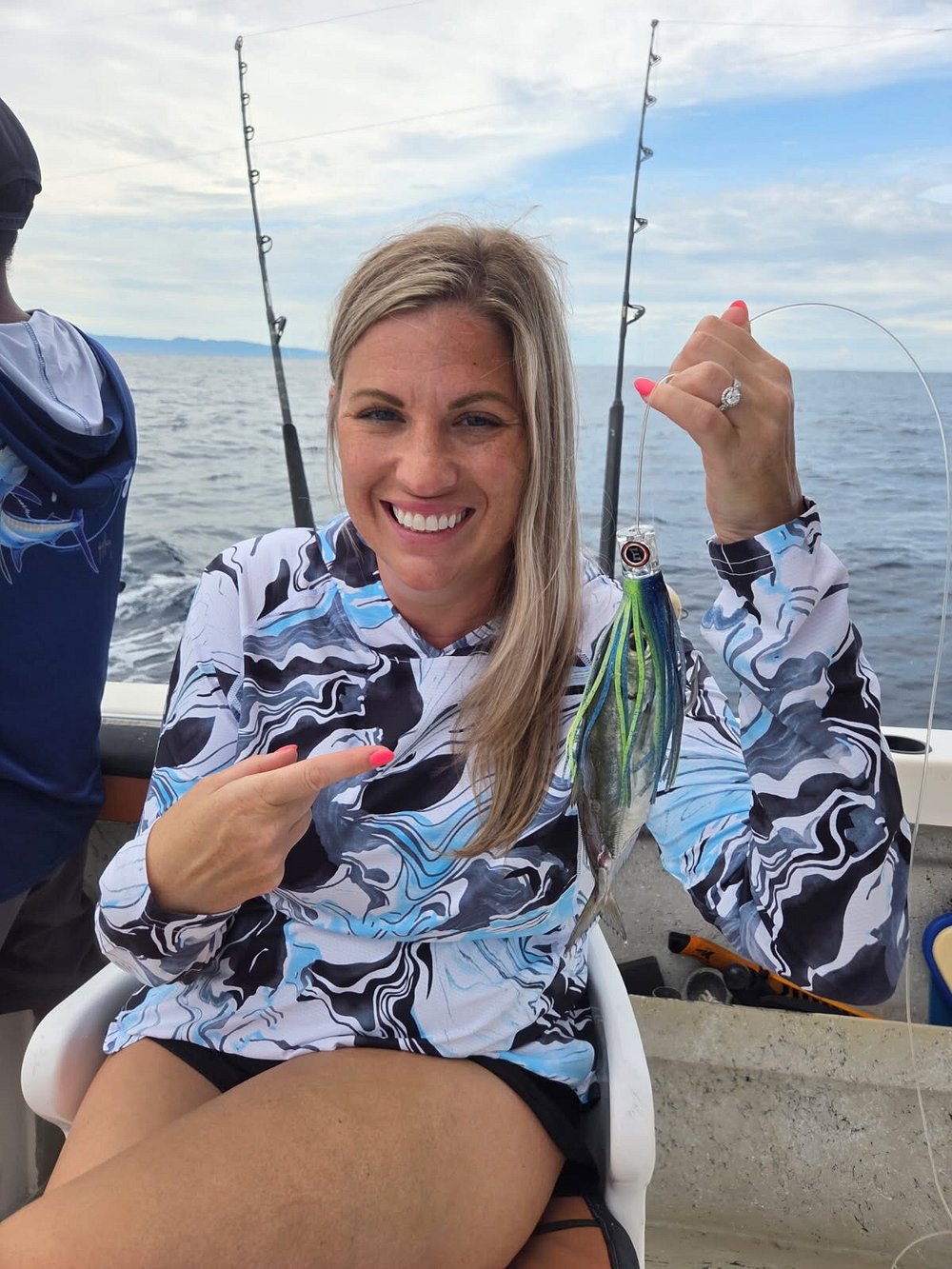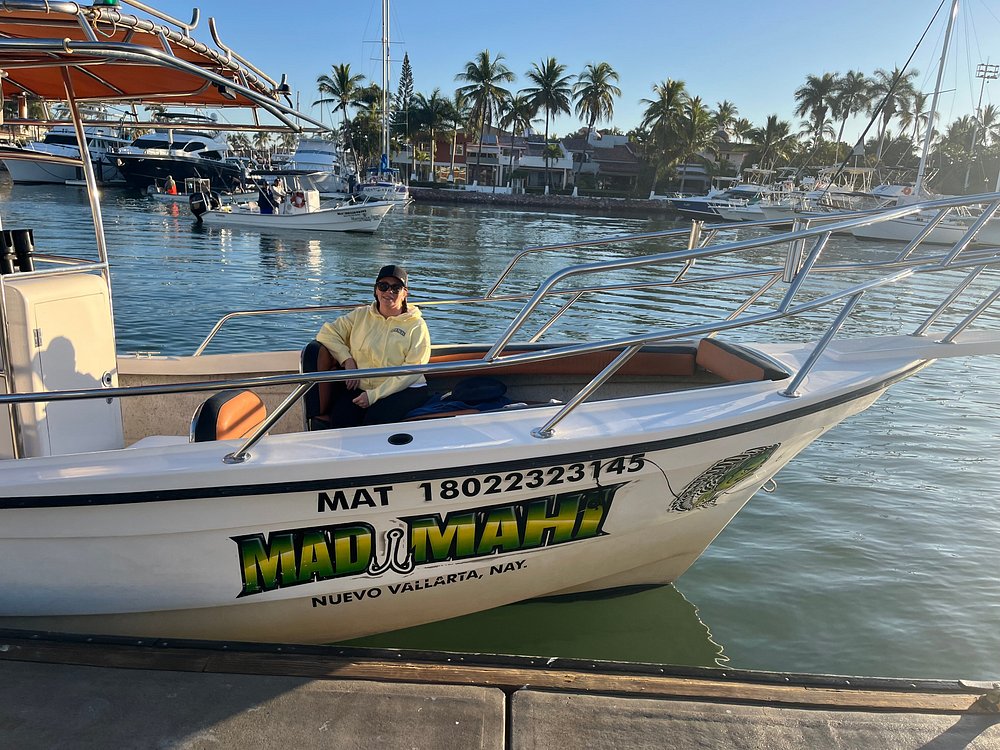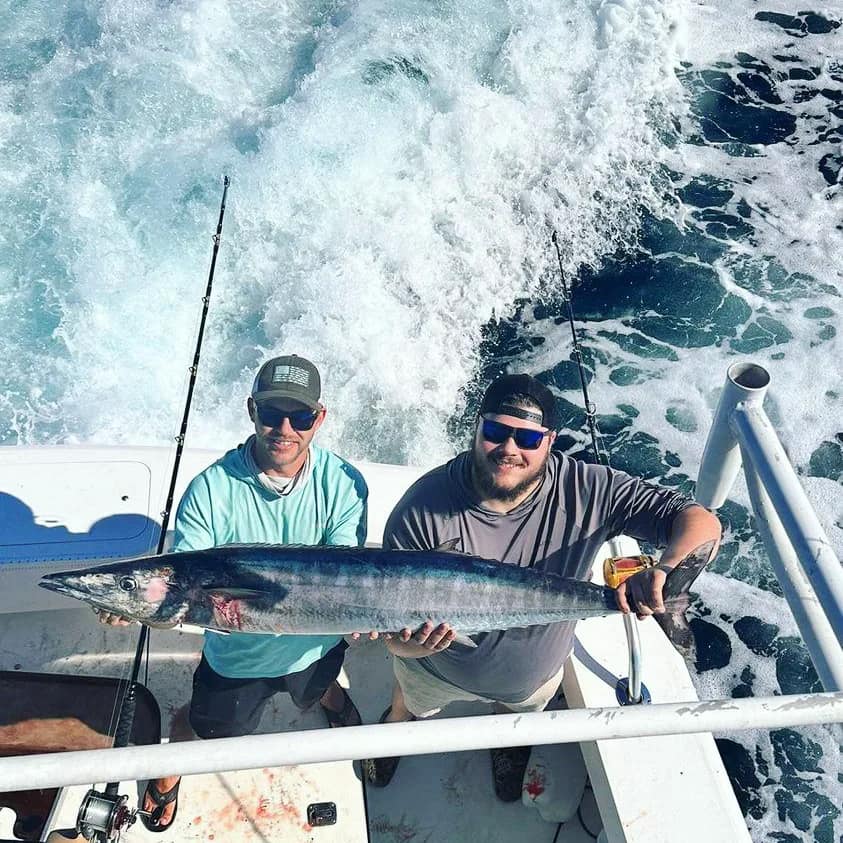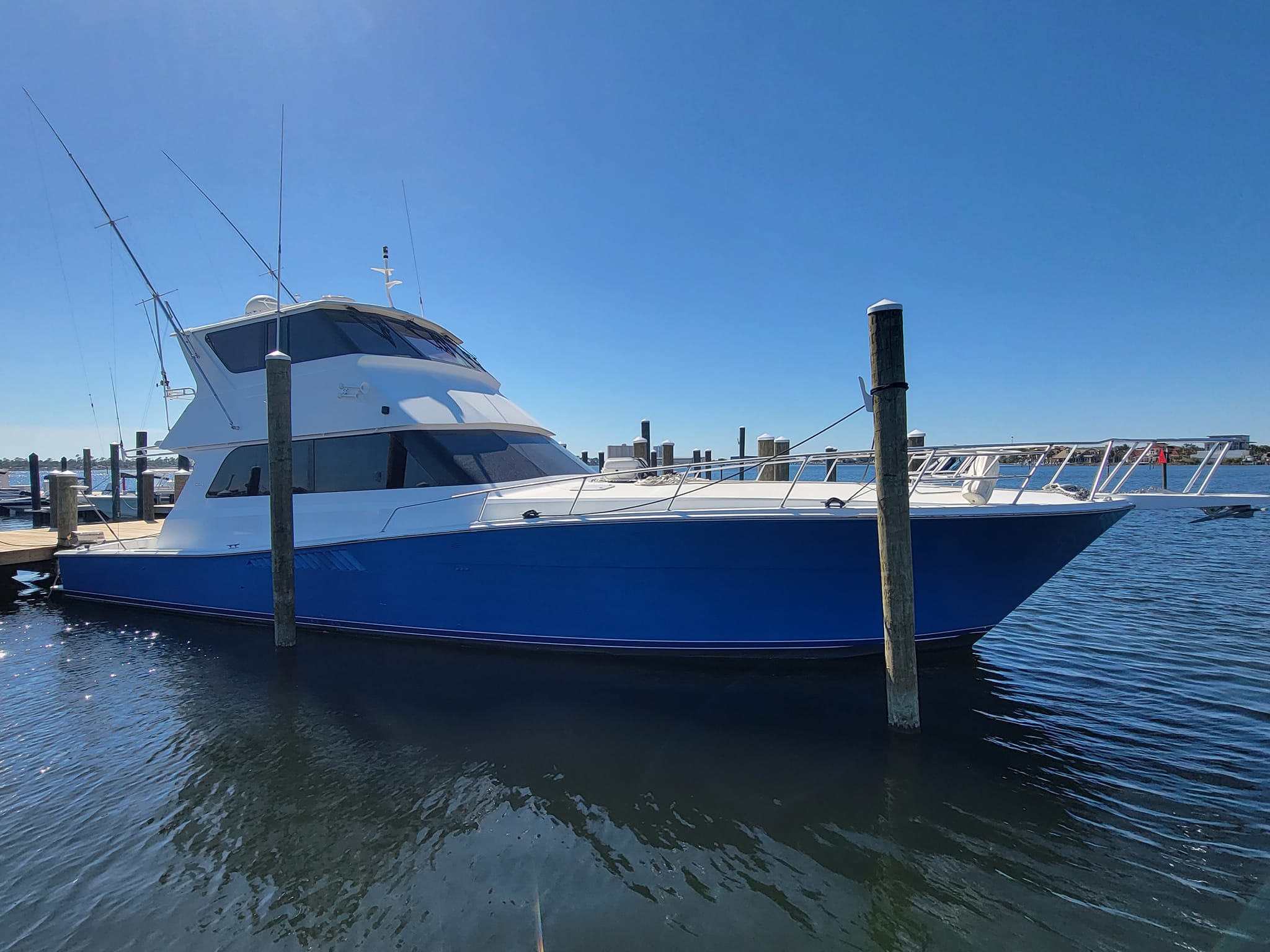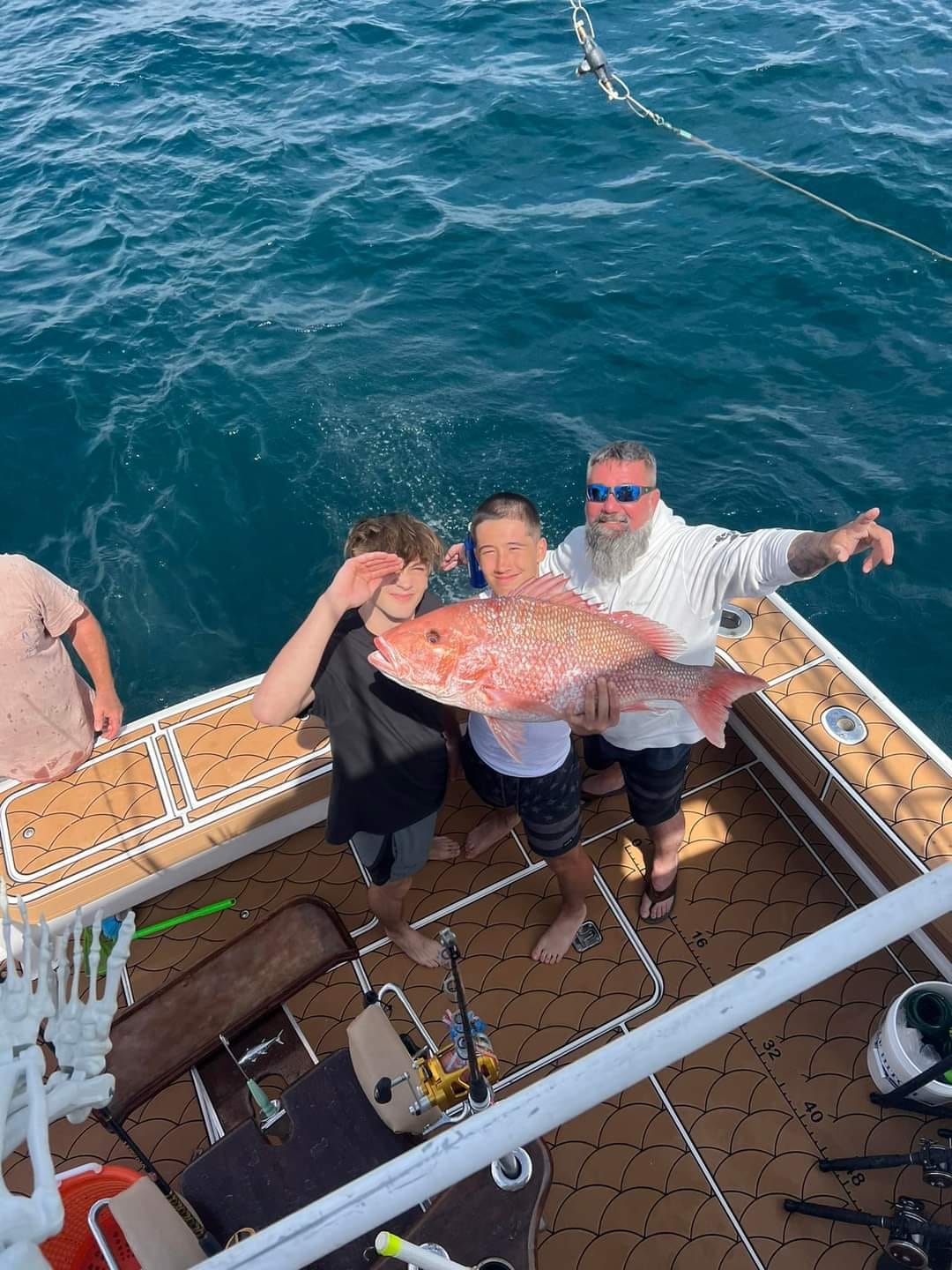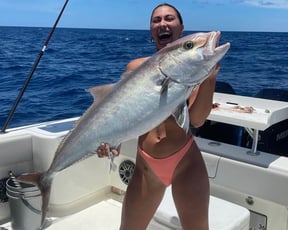Fishing La Paz - Day Trips
Inshore, Deep Sea Fishing in Puerto Vallarta
4 Hours Inshore NV
Deep Sea Fishing in Puerto Vallarta
Offshore Fishing Trip - LC
Deep Sea Fishing in Puerto Vallarta
Offshore Fishing Trip - NV
Deep Sea Fishing in Boca Raton
Deep Sea Fishing Excursion
Deep Sea, Nearshore Fishing in La Paz
All Inclusive (4 Nights / 3 Days)
36 Hour Northeast Canyons Trip
Inshore, Deep Sea Fishing in Cruz de Huanacaxtle
4 Hrs Fishing Trip La Cruz
Inshore, Deep Sea Fishing in Nuevo Nayarit
4 Hrs Fishing Trip
Deep Sea Fishing in Panama City Beach
Offshore Bottom Fishing
We started Captain Experiences to make it easy to book fishing and hunting guides around the world. With over 2,000 Damn Good Guides, our platform makes finding and booking a trip seamless. Head here to check out our trips.
Mahi Mahi Fishing
Mahi-mahi, also known as mahi, dolphin, or dorado depending on location, is a tasty fast-growing fish that can be found worldwide in temperate and tropical waters. Mahi-mahi are one of the most recognizable saltwater species with sleek compressed bodies and a single long dorsal fin extending most of their body. The vivid coloration of mahi-mahi also set them apart with iridescent colors ranging from vibrant shades of green to gold and blue to silver.
Mahi-mahi are formidable fighters with a name that comes from the Hawaiian language and translates to “strong-strong”. These fish tend to top out around three to five feet long and 20 to 35 pounds. While this isn’t very big compared to other fish that are commonly caught while trolling, mahi can also be caught by sight casting which is one of the most exhilarating fishing experiences.
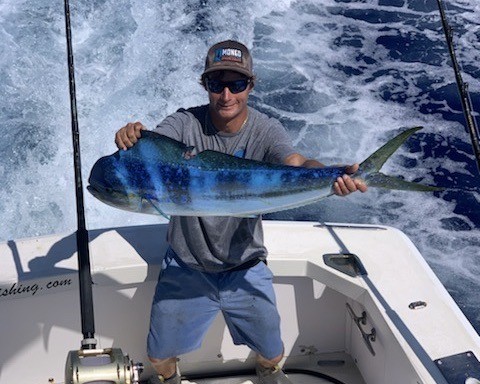
Where’s The Best Place to Catch Mahi Mahi
For anglers who want to catch a trophy sized mahi-mahi, the best chances will be at one of these 5 locations: Panama, Cabo San Lucas, Florida, the Bahamas, or Costa Rica. If those spots are a bit too far, mahi can be found around the world in tropical to temperate waters and are commonly caught in the Gulf of Mexico, Atlantic, and Pacific which opens up plenty of options.
Mahi mahi are typically found in warm currents near floating debris where they feed on baitfish and other small critters. While they live in deep offshore waters, mahi-mahi stay near the surface to hunt. Young mahi run in schools but the mature trophy-sized mahi tend to hunt alone.
When’s The Best Time to Catch Mahi Mahi?
Along the Gulf Coast and South Atlantic, the best time for mahi-mahi is from April through June. Mahi-mahi have strong numbers throughout the summer but these fish can also be caught year-round. Targeting mahi immediately after storms is an effective strategy because debris pushed offshore by strong winds will concentrate the fish.
How To Catch Mahi Mahi?
There are two common strategies for targeting mahi-mahi: trolling and sight-casting. While trolling some anglers choose to target mahi specifically, while others catch them while targeting other pelagics species. It’s always a good idea to have a few options on hand to mix up your spread.
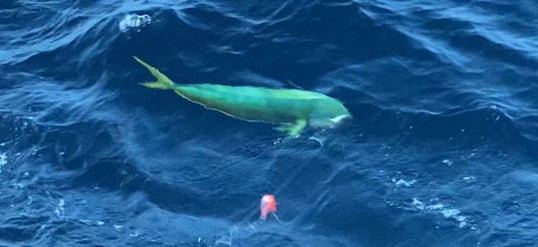
Even if you’re trolling, make sure you have a few spinning rods setup in case you spot a school of mahi near the surface. Sight casting is a thrilling way to catch mahi but also break up a long day of trolling. While the heavy tackle used for trolling can overpower a mahi, light tackle spinning rods level the playing field and allow anglers to experience the power of these incredible fish.
You’ll commonly find mahi near flotsam, and you can cast into them right away (some prefer to chum nearby first). Throw bait near debris lines and leave the bail open so the bait can sink a few feet before the retrieve. Mahi-mahi generally respond quickly and violently to lures and bait. Mahi are fast, which means the retrieve won’t outpace these fish, but be careful when you hook into one because they can take all the line off the spool.
Joey Butrus
Updated on July 31, 2023
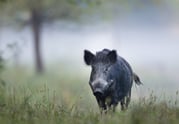
November 7, 2023
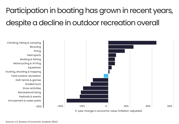
June 28, 2023
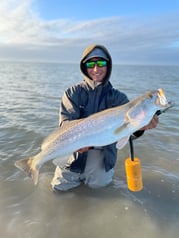
January 19, 2021

May 13, 2024
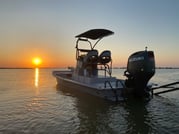
January 7, 2022
Related Articles
September 13, 2019
October 23, 2022
December 20, 2021
Featured Locations
- Fishing Charters Near Me
- Austin Fishing Guides
- Biloxi Fishing Charters
- Bradenton Fishing Charters
- Cabo San Lucas Fishing Charters
- Cancun Fishing Charters
- Cape Coral Fishing Charters
- Charleston Fishing Charters
- Clearwater Fishing Charters
- Corpus Christi Fishing Charters
- Crystal River Fishing Charters
- Dauphin Island Fishing Charters
- Daytona Beach Fishing Charters
- Destin Fishing Charters
- Fort Lauderdale Fishing Charters
- Fort Myers Fishing Charters
- Fort Walton Beach Fishing Charters
- Galveston Fishing Charters
- Gulf Shores Fishing Charters
- Hatteras Fishing Charters
- Hilton Head Fishing Charters
- Islamorada Fishing Charters
- Jacksonville Fishing Charters
- Jupiter Fishing Charters
- Key Largo Fishing Charters
- Key West Fishing Charters
- Kona Fishing Charters
- Lakeside Marblehead Fishing Charters
- Marathon Fishing Charters
- Marco Island Fishing Charters
- Miami Fishing Charters
- Montauk Fishing Charters
- Morehead City Fishing Charters
- Naples Fishing Charters
- New Orleans Fishing Charters
- New Smyrna Beach Fishing Charters
- Ocean City Fishing Charters
- Orange Beach Fishing Charters
- Panama City Beach Fishing Charters
- Pensacola Fishing Charters
- Pompano Beach Fishing Charters
- Port Aransas Fishing Charters
- Port Orange Fishing Charters
- Rockport Fishing Charters
- San Diego Fishing Charters
- San Juan Fishing Charters
- Sarasota Fishing Charters
- South Padre Island Fishing Charters
- St. Augustine Fishing Charters
- St. Petersburg Fishing Charters
- Tampa Fishing Charters
- Tarpon Springs Fishing Charters
- Venice Fishing Charters
- Virginia Beach Fishing Charters
- West Palm Beach Fishing Charters
- Wilmington Fishing Charters
- Wrightsville Beach Fishing Charters
